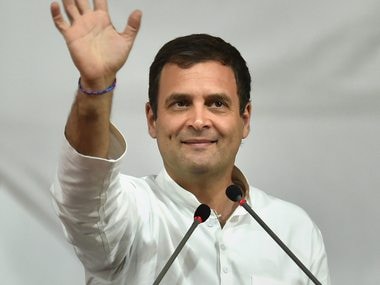Congress president Rahul Gandhi has promised to make life easier for startups. If his party comes to power, he has said, it will give new firms a three-year breather from the red tape that strangles all small and medium firms.
He also promised to abolish the angel tax that has caused much heartburn recently. This was a tax, let’s not forget, levied by the previous United Progressive Alliance (UPA) government and it is good that he is now promising to revisit it.
Scything red tape for startups is, however, a far more significant proposal. What this means is that startups will not have to get sundry prior permissions before starting a business for three years. In this article in Business Standard, head of the Congress research team Rajeev Gowda explained that new entrepreneurs will be exempt from all applicable laws and regulations (barring the Minimum Wages Act and tax laws) for three years from the day they start operations.
The proposal probably stems from an initiative of the Congress government in Rajasthan. The Micro, Small and Medium Enterprise (Facilitation of Establishment & Operation) Ordinance, 2019 allows entrepreneurs in Rajasthan to start new businesses without having to seek permissions and approvals for three years. This doesn’t mean that they are free to flout norms and laws but they can submit self-declarations. After three years, they will have to get all the required green signals within six months.

Giving startups more freedom will, without doubt, give entrepreneurship the boost that the economy sorely needs. The Narendra Modi government’s Startup India programme did give a push, but the impact was limited because of the regulatory hurdles startups faced.
The programme allowed self-certification for quite a few regulations related to environmental norms (36 industries did not require environmental clearance under three laws), the Apprenticeship Act and Rules and six labour laws. However, these are central laws and startups did have to deal with a stifling permit-licence raj in states.
An enterprise survey of Indian states on ease of doing business by NITI Aayog and IDFC Institute in 2017 showed that the average time taken to start a business is 118 days against claims that companies can be incorporated in less than a week (the range was 63 days in Tamil Nadu, the best performing state, and over 200 days in Kerala and Assam). The average time to get land allotted is 156 days, construction permits 112 days and No Objection Certificates (NOCs) 75 days.
So, this is the first reality check that Gandhi’s promise will be subject to. If the Congress comes to power at the Centre, the laws and regulations for which it will allow relaxation will be limited because the bulk of permissions that entrepreneurs have to deal with are at the level of the state and local bodies.
And the Modi government has already given relaxations with regard to the regulations under the purview of the Centre. It will not be enough to have one Rajasthan passing such a law; Gandhi should persuade other Congress governments to follow suit.
The second reality check will be how state governments operationalise the new regulatory regime. The enterprise survey showed that 12 percent of businesses were not even aware of single window for clearances despite all states saying they had this system.
But the real question is why should relaxations be limited to new firms and for three years? The enterprise survey showed startups faced less regulatory hurdles than older firms. It is good that new firms are allowed to save their energies to build their businesses instead of dealing with sundry inspectors. Why not extend this to beyond three years? One of the many reasons why firms in India prefer to remain small is that they face the full force of regulations immediately they cross a certain size threshold.
Limiting the relaxations to three years assumes that companies will be better placed to deal with compliance burdens once they are more than three years old. There is a need to revisit this assumption.
The ease of doing business initiatives of the Modi government, especially the annual ranking of states, has led to healthy competition among them to cut red tape. However, it is more about taking processes on line or setting up single windows than a fundamental questioning of the need for many regulations. This needs to change. Perhaps Modi can outdo Gandhi by promising to this.
Well, the promise (like Gandhi’s) will have limited value since much of what needs to be done is in the realm of state governments. But at least the conversation can get going.
source: Firstpost.com







































